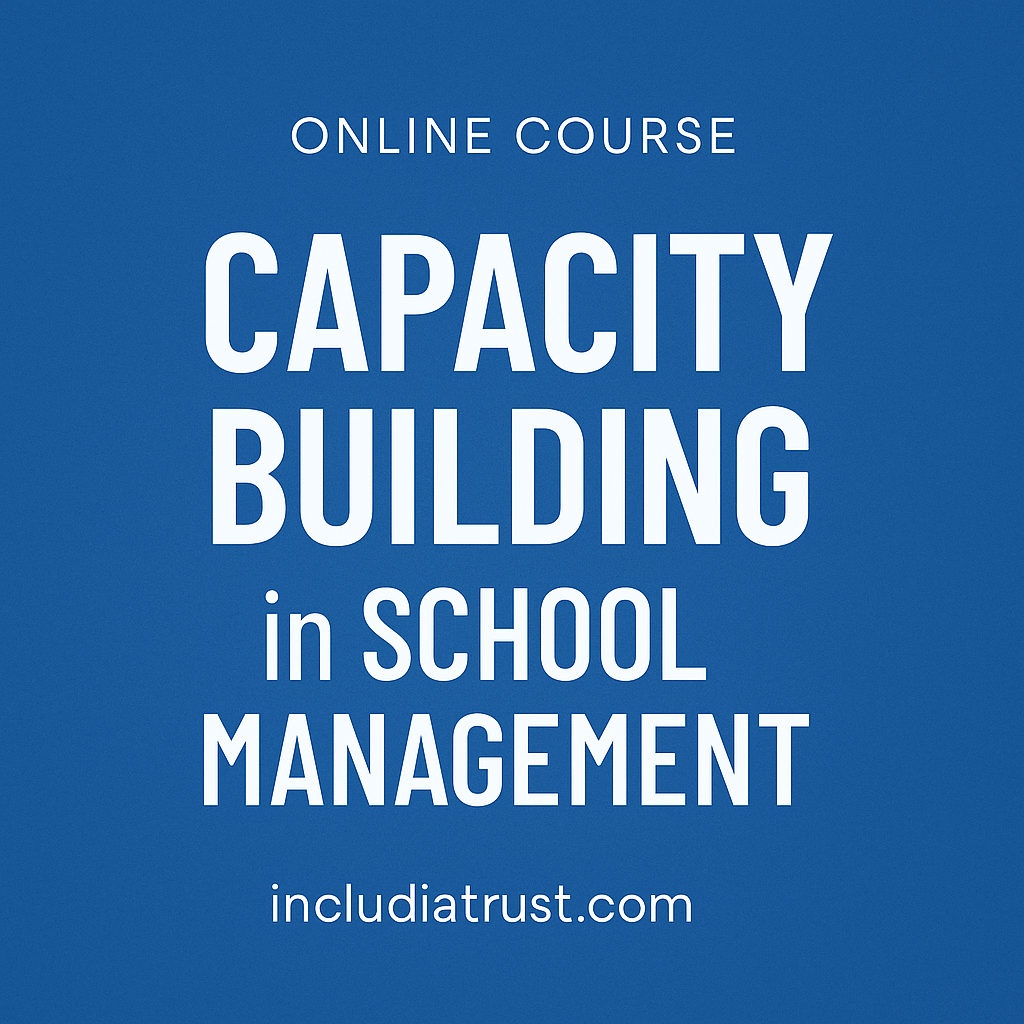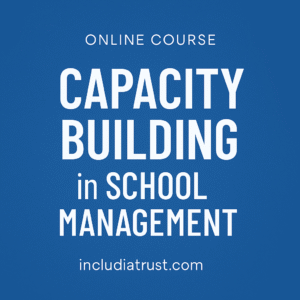Capacity Building in School Management

About Course
Capacity Building in School Management is an intensive, practice-focused 10-week programme that transforms school leaders and aspiring managers into high-impact change agents. Its structure—four hours per week—combines adult-learning principles with active methodologies: case studies, problem-based projects, simulations, peer coaching, reflective practice and field pilots so participants acquire immediately implementable skills and usable tools. Modules span visionary leadership, strategic and operational planning, resource and financial management, data-driven instructional improvement, stakeholder engagement, inclusive practices for marginalized learners, quality assurance systems, change management and sustainability. Every week integrates applied tasks, templates and facilitator guides to ensure transfer to real school contexts. Assessment is continuous and demanding: weekly reflections, evidence portfolios, coach feedback and an applied capstone requiring participants to design, pilot and refine a School Improvement Plan with measurable indicators. The curriculum intentionally emphasises low-cost, scalable interventions, monitoring frameworks and indicators for learning gains and institutional resilience. Graduates are expected to lead collaborative leadership teams, mobilise community and local resources, use data strategically to guide teaching, and institutionalise processes that persist through leadership transitions. The course sets a high bar for demonstrable impact by requiring a tested improvement pilot, documented outcomes and a public presentation. Designed for immediate field application and systemic change, this programme prepares participants to produce measurable improvements in school functioning, equity and student learning within months of completion. The programme also builds facilitator capacity, connects participants to mentorship networks and a curated resource library, and aligns school improvement work with district policies to enable evidence-based scaling of successful pilots.
Intended Learning Outcomes (ILOs)
On successful completion participants will be able to:
- ILO1 — Strategic Leadership: Articulate a vision and strategy for whole‑school improvement and lead collaborative leadership teams to implement it.
- ILO2 — Planning & Resource Management: Prepare realistic annual and micro‑plans, manage school budgets, and mobilise local resources effectively.
- ILO3 — Instructional Leadership & Data Use: Use classroom and assessment data to guide teacher development, curriculum prioritisation and school-level target setting.
- ILO4 — Inclusion & Community Engagement: Design and operationalise inclusive practices for marginalized learners and strengthen stakeholder participation.
- ILO5 — Quality Assurance & M&E: Design simple monitoring and evaluation (M&E) frameworks with measurable indicators and feedback loops.
- ILO6 — Change & Sustainability: Lead change management processes and institutionalise improvements to survive leadership transitions.
The course is organised into four thematic units across 10 weeks:
- Unit 1 (Weeks 1–2): Vision & Programme Theory for School Improvement (Leadership foundations)
- Unit 2 (Weeks 3–4): Planning, Budgets & Resource Mobilisation (Operational management)
- Unit 3 (Weeks 5–7): Instructional Leadership, Data Use & Inclusion (Teaching and learning focus)
- Unit 4 (Weeks 8–10): Quality Assurance, M&E, Change Management & Sustainability (Institutionalisation)
Course Content
Foundations: What Effective School Leadership Looks Like
Student Ratings & Reviews



